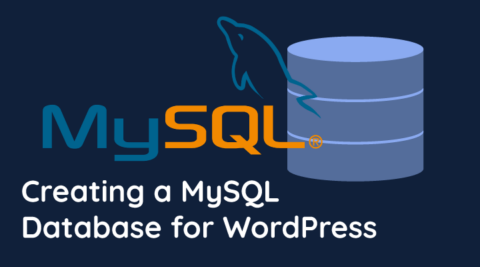Writing legal policies for your WordPress website may feel a little daunting. However, without these important pages, you could find yourself in hot water and damage your brand’s reputation.
If you’re unable to hire a legal expert, there are tools you can use to create policies for your WordPress site. This way, you can ensure that you’re protected against claims or complaints from disgruntled users.
In this post, we’ll discuss the importance of creating legal policies for your WordPress website. Then, we’ll look at a few essential policies and show you how to create them. Let’s get started!
Table of contents
Why It’s Important to Create Legal Policies for Your WordPress Website
Every e-commerce site needs legal policies. These are pages that contain essential information about your business practices, such as how you collect and process customer data.
If you sell products or offer services, you’ll also need to outline your terms of use. These are guidelines that users must adhere to when engaging with your website or product.
These legal policies can help protect your online business from liability risks. If a customer is unhappy with your offerings or something goes wrong, they will be unable to claim compensation or sue you for damages, assuming that the issue is covered in your policies.
Additionally, if you collect user data on your WordPress website, you are legally required to disclose this information to your visitors. Non-compliance with laws such as the California Consumer Privacy Act (CCPA) and the General Data Protection Regulation (GDPR) can land you in court.
Complying with laws such as GDPR can be fairly complex. Disclosing what information you’re collecting is definitely one of the more important aspects of this law, as is giving users the option to opt out. Other equally important requirements include adding WordPress 2FA for better login security and keeping a log of user activity on your WordPress website for greater transparency and accountability.
Once you publish these legal policies on your site, you’ll need to make sure that they’re regularly updated. For example, if you start offering a new type of service, you might need to add a new clause to your terms and conditions.
3 Essential Legal Policies for WordPress Websites
Now that you know the importance of drawing up legal agreements for your small business, let’s look at some essential policies for your WordPress site.
Privacy Policy

If you run a WordPress site, you probably collect user information. For example, you might have contact forms that require users to submit their email addresses.
Additionally, you might use third-party tools like Google Analytics or Google Adsense to gather details about your site visitors, such as their location and language. This information enables you to deliver targeted advertising and improve your marketing strategy.
With a privacy policy, you can outline the type of data that you collect and what you do with it.
While this page is a legal requirement, it can also help you establish trust with your customers. Therefore, you’ll want to use clear and concise language, and make sure that you cover all bases.
Luckily, you can use a legal policy generator for WordPress websites to create this important page. This way, you won’t have to worry about leaving something out. You can simply use a generic privacy policy template as your starting point and customize it so that it reflects your business practices.
For example, if the template contains a clause about gathering data from third parties, you’ll just need to list the services that you use. It’s also important to make sure that your privacy policy is easily accessible. You’ll want to link to it from your main navigation menu and the footer.
Disclaimer
A disclaimer is a statement that protects you from liability. There are different types of disclaimers, and you may need to include more than one on your WordPress website.
For instance, if you use affiliate links on your site, you’ll need to have an affiliate disclaimer. This should describe the nature of your relationship with the brands you promote. You’ll also need to let users know that you receive financial compensation when they purchase a product through your affiliate links.
If you have a blog, you’ll need to warn users that you cannot be held responsible for any decisions that they make based on an article they read on your site. This is particularly important if you share financial advice or recommend places like outdoor attractions or extreme sports activities. This way, if a user makes the wrong investment or sustains an injury, they won’t be able to sue you.
Once again, you can use an online policy generator to draft your disclaimer. You should be able to find templates for different purposes, including copyright disclaimers, professional liability, and a no-responsibility disclaimer.
Cookie Policy

A cookie policy is a notice that informs users that you use cookies on your site. Cookies are small files that collect and store personal information, such as your username and email address.
According to data regulations like the GDPR, websites should disclose the type of data that they collect and give users the option to manage their preferences. This is a separate page from your privacy policy. The cookie notice should be one of the first things that users see when they land on your site.
A cookie pop-up or banner should contain links to your cookie policy. This policy should contain:
- A clear definition of cookies and how they work.
- The type of cookies that you use (e.g., first and third-party) and what they’re for.
- Cookie management options for your users.
Most importantly, users should be able to accept or reject cookies. You can use a cookie policy generator and customize the information so that it aligns with your data practices.
2 Bonus Recommendations
So far, we’ve looked at three essential legal policies for your WordPress site. However, there are two other documents that you might need.
Terms and Conditions
If you sell products and services online, you’ll need to state your terms and conditions. This can help you protect your business from potential abuse and ensure transparency with your customers.
The clauses in your Terms and Conditions document will depend on the type of website or business that you run. Typically, this policy lays out the rules about the use of your website, product, or service. You could also use this policy to affirm ownership of your site’s content.
DMCA Policy
A DMCA policy is designed to help protect your business against copyright infringement. This can be particularly useful if you create and distribute creative content, like photos, videos, and music. It’s also important to add this policy if you offer online courses and create your own course material.
If you have a DMCA policy on your site, you can take legal action against anyone who shares and distributes your copyrighted materials without your permission. However, this policy only applies to business owners who live in the US (or have their content hosted in this country).
Conclusion
As a WordPress website owner, you’ll need to make sure that you’re protected against liabilities. For instance, users might accuse you of data misappropriation or blame an injury on your business. By using an online policy generator, you can quickly draw up legal documents to combat these claims.
To recap, here are five essential legal policies for your WordPress site:
- Privacy Policy
- Disclaimer
- Cookie Policy
- Terms and Conditions
- DMCA Policy
Do you have any questions about creating legal policies for your WordPress website? Let us know in the comments section below!



